A
Acceptance Fee: A one-time fee charged by lenders to cover the cost of processing a car loan application.
Administration Fee: A charge by lenders for managing the loan process, including documentation and account maintenance.
Agreement Term: The duration over which the car finance agreement is active.
Amount of Credit: The total sum borrowed under a finance agreement.
Annual Percentage Rate (APR): The yearly interest rate charged on borrowed funds, including fees, expressed as a percentage.
Arrears: Overdue payments that have not been made by their due date.
Authorised Push Payment (APP) Scam: A type of fraud where a victim is tricked into sending money to a fraudster’s account.
B
Balloon Payment: A large final payment due at the end of certain finance agreements, such as PCP, to settle the remaining balance.
Base Rate: The interest rate set by the Bank of England, influencing lending rates across the financial sector.
Broker: An intermediary who arranges finance between the borrower and lender, often earning a commission.
C
CAIS (Credit Account Information Sharing): A system used by lenders to share information about borrowers’ credit histories.
Capital Balance: The remaining principal amount owed on a loan, excluding interest.
Car Finance: Various methods of funding the purchase or lease of a vehicle, including loans and leasing agreements.
Car Lease: A contractual agreement where one pays to use a car for a specified period, without ownership transfer.
Car Loan: A sum borrowed to purchase a car, typically repaid with interest over time.
Cash Price: The total cost of a car when purchased outright, without financing.
Chargeback: A chargeback is when a consumer requests their bank to reverse a transaction due to fraud, non-receipt of goods/services, or other disputes.
Claim: A claim can be a claim for compensation due to mistreatment by a financial services provider (such as a bank or a lender), for example, a mis-sale claim. A claim like this is also called a complaint. A claim can also be when you need your insurance cover to pay out—for example, claiming on your car insurance because your car has been damaged.
Cleared Funds: Money that has been fully processed and is available for use.
Commission Disclosure: The act of informing customers about any commissions or fees that a broker or dealer will receive in relation to a financial product or service, ensuring transparency and informed decision-making.
Compensation: This is the money you get if your claim/complaint about a financial service provider is successful. The aim of compensation is usually to put you back in the position you would have been in had the mis-selling or mistreatment not occurred.
Compensatory Interest: Compensatory interest is usually paid at a rate of 8% simple. It is paid when you have been deprived of some of your money as a result of mis-selling or mistreatment—for instance, because you could have earned interest on your money had the right thing happened in the first place.
Complaint: Another word for a claim for compensation. Complaints can be made against financial service providers for mis-selling or mistreatment.
Conditional Sale: A finance agreement where ownership of the car transfers to the buyer after all payments are made.
Consumer Credit: Financial services related to lending money to consumers, including personal loans, credit cards, and other forms of credit.
Consumer Credit Act 1974: UK legislation regulating consumer credit and hire agreements, ensuring consumer protection.
Consumer Rights Act 2015: Legislation consolidating consumer rights regarding goods, services, and digital content.
Continuous Payment Authority (CPA): A type of recurring payment arrangement where a company is authorised to take payments from a consumer’s debit or credit card.
Cost of Credit: The total amount paid over the loan term, including interest and fees.
County Court Judgment (CCJ): A court order against a borrower who has failed to repay a debt, affecting credit ratings.
Credit Agreement: A legally binding contract outlining the terms of a loan between borrower and lender.
Credit Broker: An entity that arranges credit for consumers, acting as an intermediary between borrower and lender.
Credit Rating / Score: A numerical representation of a borrower’s creditworthiness, based on credit history.
Creditworthiness Assessment: An evaluation conducted by lenders to determine a borrower’s ability to repay a loan. This assessment considers factors such as income, credit history, and existing financial commitments.
D
Dealer: An authorized seller of vehicles, often offering financing options.
Debt Management Plan (DMP): An informal arrangement with creditors to repay debts at a more affordable rate, often set up through a debt management company.
Default: When a borrower fails to meet the agreed repayment terms of a loan, leading to potential legal or financial consequences.
Deposit: An initial payment made towards the purchase of a car, reducing the amount financed.
Deposit Contribution: A sum contributed by the dealer or manufacturer towards the buyer’s deposit, often as an incentive.
Depreciation: The reduction in a vehicle’s value over time due to factors like age and mileage.
Discretionary Commission Arrangement (DCA): A commission model where the broker’s earnings are influenced by the interest rate set, potentially leading to conflicts of interest.
Disinterested Duty: An obligation for brokers or dealers to provide advice or recommendations impartially, without being influenced by personal gain or conflicts of interest.
Due Diligence: This is the research and investigations carried out to make sure a person or company is good and trustworthy before doing dealings with them. An example of this is that customers are expected to carry out due diligence before making an investment or buying a product to make sure the company is legitimate and not a fraudster or scammer.
E
Early Settlement: The process of paying off a loan before the agreed term ends, sometimes resulting in early repayment charges.
Equity: The difference between a car’s market value and the outstanding loan balance.
Excess: This relates to car insurance and is the amount you agree to pay towards your insurance claim. It means you may pay lower premiums but will have an excess deducted from the insurance settlement you receive.
Excess Mileage: Additional charges incurred for exceeding the agreed mileage limit in lease agreements.
F
Fair Wear and Tear: Acceptable deterioration of a vehicle through normal use, as defined in lease agreements.
Fiduciary Duty: A legal obligation of one party to act in the best interest of another. In financial services, brokers and dealers have a fiduciary duty to act honestly and in good faith when dealing with clients.
Final Response Letter: A letter from a financial institution that formally addresses a customer’s complaint, typically a prerequisite for escalating to the Financial Ombudsman Service.
Finance & Leasing Association (FLA): The UK’s leading trade body for the asset, consumer, and motor finance sectors, promoting sustainable finance through expert insights, regulatory advocacy, and ethical practices.Fla+3oomi+3Fla+3
Financial Conduct Authority (FCA): The regulatory body overseeing financial markets and firms in the UK.
Financial Ombudsman Service (FOS): An independent organisation that settles disputes between consumers and financial service providers, offering a free service to consumers.
Financial Services Compensation Scheme (FSCS): The FSCS is there to protect consumers when financial services providers go out of business and no longer have enough money. It means that consumers should still get their savings back or some compensation they’re owed. However, payday lenders are not covered by the FSCS.
Financial Services Provider: Any company, such as a bank, insurer, or lender, which provides financial products and services (loans, insurance cover, savings, investments, etc.).
Fixed Interest Rate: An interest rate that remains constant throughout the term of a loan or investment, providing predictable payments and shielding borrowers from market fluctuations.TheFreeDictionary.com+4Livewell+4WallStreetMojo+4
Financial Services Compensation Scheme (FSCS): The UK’s statutory compensation scheme that protects consumers when authorised financial services firms fail. It covers deposits, insurance, investments, and more, up to specified limits. M&G+2Wikipedia+2FCA+2
G
GAP Insurance (Guaranteed Asset Protection): Covers the difference between a vehicle’s current market value and the amount still owed on finance if the car is written off or stolen.
Guarantor Loan: A loan where a third party agrees to repay the debt if the primary borrower defaults, often used to assist individuals with poor credit histories.
H
High-Cost Short-Term Credit (HCSTC): Often referred to as payday loans, these are loans with high interest rates and short repayment periods, typically under a year.
I
Irresponsible Lending: Occurs when lenders fail to conduct adequate checks to ensure a borrower can afford repayments, potentially leading to financial hardship.
J
Joint Application: A loan application made by two or more individuals, sharing responsibility for repayments.
K
Key Facts Document: A summary provided by lenders outlining the main features and costs of a financial product.
L
Lease Purchase: A finance agreement similar to Hire Purchase but includes a balloon payment at the end of the term.
Lender: An individual or institution that provides funds to a borrower with the expectation of repayment.
Logbook Loan: A secured loan where the borrower’s vehicle is used as collateral, and ownership can transfer to the lender upon default.
M
Mis-sale / Mis-selling: Occurs when a financial product is sold without proper explanation of its features and risks, or when it’s unsuitable for the customer’s needs.
Moneybarn: A UK-based lender specializing in car finance for individuals with non-standard credit profiles.
N
Negative Equity: When the outstanding loan balance exceeds the current value of the vehicle.
Non-Discretionary Commission: A fixed commission model where the broker’s earnings are not influenced by the interest rate set.
Novated Lease: An agreement where an employer takes on the obligations of a car lease on behalf of an employee, commonly used in salary packaging.
O
Option to Purchase Fee: A fee paid at the end of a finance agreement to transfer ownership of the vehicle to the borrower.
Outstanding Balance: The remaining amount owed on a loan at any given time.
P
Part Exchange: Trading in an existing vehicle as part of the payment towards a new one.
Personal Contract Hire (PCH): A long-term rental agreement where the vehicle is returned at the end of the term without the option to purchase.
Personal Contract Purchase (PCP): A finance agreement with lower monthly payments and a final balloon payment, offering options at the end of the term.
Personal Loan: An unsecured loan used to finance the purchase of a vehicle, not tied to the vehicle itself.
Q
Qualifying Disclosure: Information provided by a financial institution that meets regulatory requirements, ensuring transparency and compliance.Money to the Masses+6Intuit Credit Karma+6Wall Street Oasis+6
R
Reclaim: The process of requesting a refund or compensation for mis-sold financial products, unfair charges, or unaffordable lending.
Redress: Another term for compensation awarded for a successful claim or complaint.
S
Scam: A fraudulent scheme designed to deceive individuals into providing money or personal information.
Section 75 Protection: A UK consumer protection law under the Consumer Credit Act 1974, allowing consumers to claim a refund from their credit card provider for purchases between £100 and £30,000 if something goes wrong.
T
Total Loss: A term used when a vehicle is deemed uneconomical to repair after an accident, leading to it being written off by the insurer.
U
Unaffordable Lending: Refers to the practice of providing loans or credit to borrowers without ensuring they have the means to repay, leading to potential financial distress.
V
Vehicle Write-Off: Occurs when a vehicle is damaged beyond repair or deemed uneconomical to fix, resulting in the insurer declaring it a total loss.
Volume Commission: A commission structure where brokers or dealers receive incentives based on the volume of sales or finance agreements completed.
W
Write-Off: In finance, this refers to a lender acknowledging that a debt is unlikely to be collected and removing it from their accounts. In insurance, it refers to declaring a vehicle a total loss.
X
X-Plan Pricing: A special pricing plan offered by some manufacturers to employees, friends, and family, providing discounts on vehicle purchases.FSCS+1Wall Street Oasis+1
Y
Yield: The income return on an investment, such as the interest or dividends received, usually expressed annually as a percentage.
Z
Zero Percent Financing: A promotional offer where the borrower pays no interest on a loan for a specified period, often used in car financing deals.









